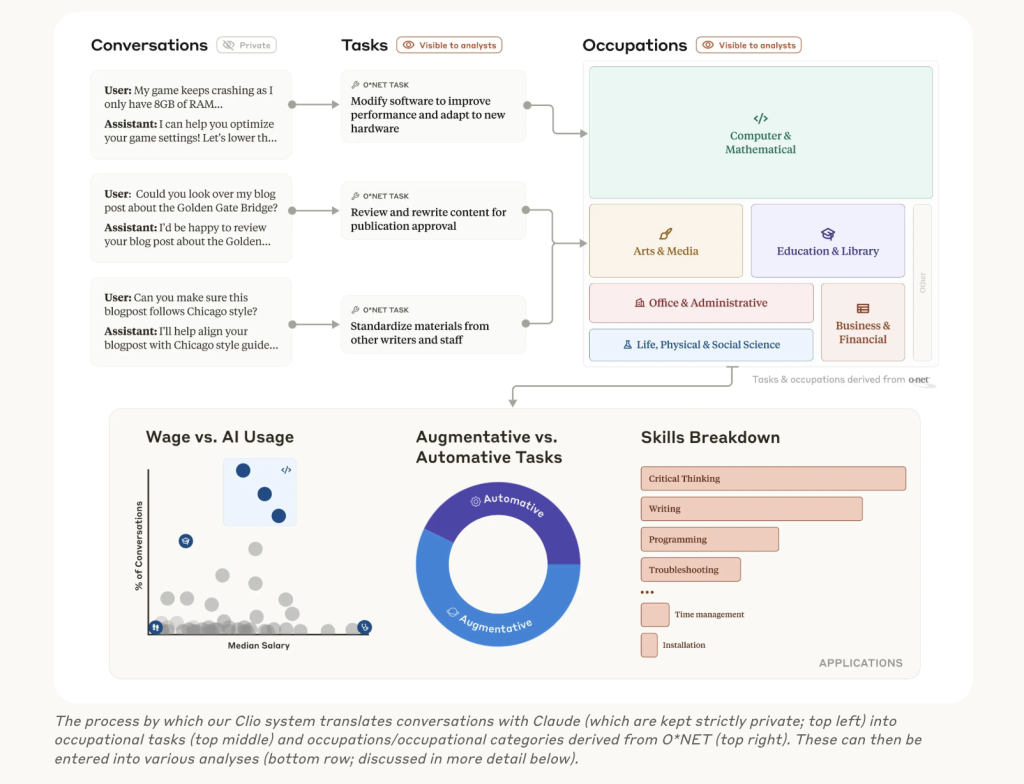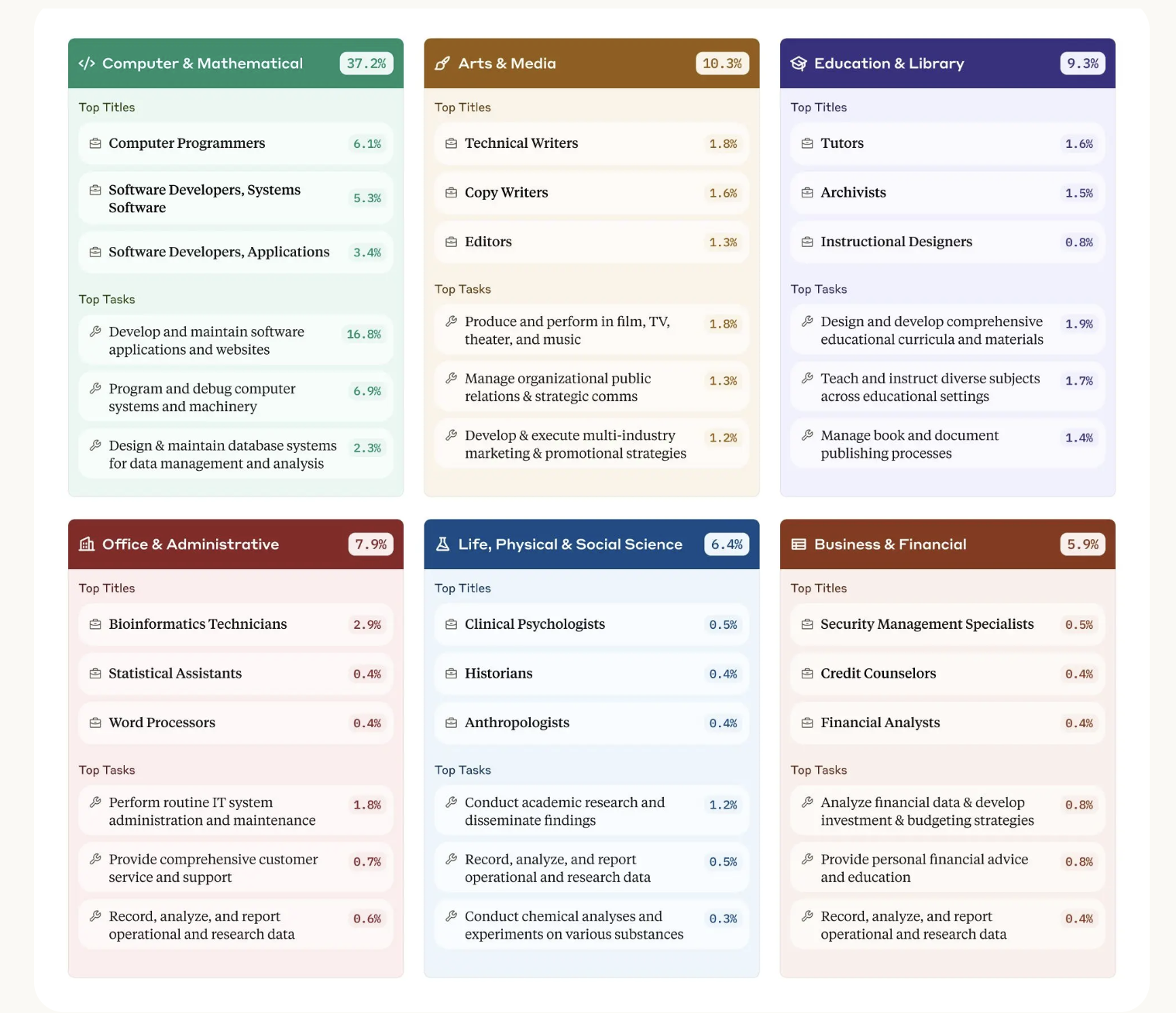Artificial intelligence is increasingly integrated into different sectors, yet there is limited empirical evidence of its real world application across industries. Traditional research methods – such as predictable modeling and user surveys – struggle to capture AI’s evolving role in workplaces. This makes it difficult to assess its influence on productivity, labor markets and economic structures. A more data -driven approach is needed to gain meaningful insight into how AI is used and its wider implications.
Anthropic AI has launched Anthropic economic indexAn initiative designed to track AI’s role in financial activities. The first report that is based on Millions of anonymous claude -conversationsShort AI use across different job categories using US Department of Labor’s O*Net Database. The results suggest that AI is primarily used in Software development and Writing tasksWith these categories account for almost half of all AI interactions. Besides, 36% of professions Incorporate AI into at least a quarter of their associated tasks, indicating its growing presence in different industries. This framework provides a structured approach to observing AI’s economic footprint over time.
Technical approach and key benefits
The Anthropic economic index Take advantage of Clioa privacy -preserving analysis tool, to study over Four million conversations From claude.ai users. By categorizing AI interactions according to business assignments defined in O*NET, the research highlights patterns in AI -Recording. Some key observations include:
- AI is widely used in software technique and content creationIt reflects its strength in technical and creative domains.
- The depth of AI use varies by occupationwith 4% of businesses using AI at least 75% of their tasks.
- Cognitive taskssuch as reading comprehension, writing and critical thinkingdominate AI interactions, whereas Physical and Management Tasks See lower commitment.
- AI-Adoption is highest in the middle of high payroll recordingsEspecially in the technology sector, while its presence in lower wages or highly specialized fields remains limited.
One of the primary benefits of this approach is its ability to Track continuously AIS economic rolethat helps companies, decision makers and researchers understand how AI reshapes the workforce.
Key insights and patterns
The study distinguishes between AI Augmentation– where AI improves human capabilities – and automationwhere AI independently end tasks. Results show it 57% of AI -interactions involve increasesuch as refining the ideas or generating draft while 43% are automation drivewhere AI performs tasks with minimal human intervention.
Other key observations include:
- Software development and data science are the most AI-intensive fields that account for 37.2% of AI-related conversations.
- Writing, education and business operations Also show significant AI use, especially in the creation of content and analytical tasks.
- Business that requires physical work, such as construction and health support, demonstrate lower AI -absent.
- AI -use is most common in jobs that require a bachelor’s degreeEspecially those in Jobzone 4 (essential preparation required)Whereas Very specialized fields (Jobzone 5), such as medicine and law, showing lower adoption Due to professional and regulatory limitations.

Conclusion
The Anthropic economic index Provides a structured way of examining AI’s influence on different professions. As AI adoption is growing, its role differs across business – and improves work in some areas while automating tasks in others. By offering a Data-supported perspective About how AI is integrated into the economy, this initiative enables better informed discussions about the work of the future. As AI develops, continued analysis will be important to understand its long -term economic effects and guide thoughtful political decisions.
Check out the paper and technical details. All credit for this research goes to the researchers in this project. You are also welcome to follow us on Twitter And don’t forget to join our 75k+ ml subbreddit.
🚨 Recommended Open Source AI platform: ‘Intellagent is an open source multi-agent framework for evaluation of complex conversation-a-system‘ (Promoted)
Aswin AK is a consulting intern at MarkTechpost. He is pursuing his double degree at the Indian Institute of Technology, Kharagpur. He is passionate about data science and machine learning, which brings a strong academic background and practical experience in solving real life challenges across domains.
✅ [Recommended] Join our Telegram -Canal
